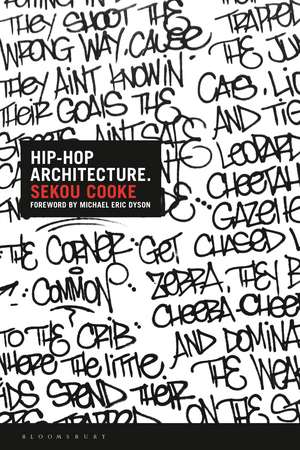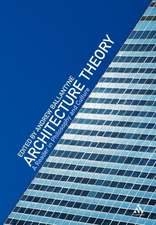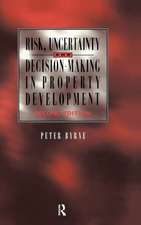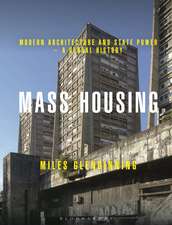Hip-Hop Architecture
Autor Sekou Cookeen Limba Engleză Paperback – 21 apr 2021
| Toate formatele și edițiile | Preț | Express |
|---|---|---|
| Paperback (1) | 182.06 lei 3-5 săpt. | |
| Bloomsbury Publishing – 21 apr 2021 | 182.06 lei 3-5 săpt. | |
| Hardback (1) | 519.31 lei 3-5 săpt. | |
| Bloomsbury Publishing – 21 apr 2021 | 519.31 lei 3-5 săpt. |
Preț: 182.06 lei
Preț vechi: 205.99 lei
-12% Nou
Puncte Express: 273
Preț estimativ în valută:
34.84€ • 36.37$ • 28.83£
34.84€ • 36.37$ • 28.83£
Carte disponibilă
Livrare economică 14-28 martie
Preluare comenzi: 021 569.72.76
Specificații
ISBN-13: 9781350116146
ISBN-10: 1350116149
Pagini: 288
Ilustrații: 120 colour illus
Dimensiuni: 189 x 246 x 17 mm
Greutate: 0.84 kg
Editura: Bloomsbury Publishing
Colecția Bloomsbury Visual Arts
Locul publicării:London, United Kingdom
ISBN-10: 1350116149
Pagini: 288
Ilustrații: 120 colour illus
Dimensiuni: 189 x 246 x 17 mm
Greutate: 0.84 kg
Editura: Bloomsbury Publishing
Colecția Bloomsbury Visual Arts
Locul publicării:London, United Kingdom
Caracteristici
Foreword by Michael Eric Dyson, author of New York Times bestsellers Jay Z: Made in America; Tears we Cannot Stop: a Sermon to White America; and What Truth Sounds Like: RFK, James Baldwin and our Unfinished Conversation about Race in America
Notă biografică
Sekou Cooke is an architect, researcher, educator, and curator based in Syracuse, NY. He is Assistant Professor at Syracuse University's School of Architecture where he teaches exploratory design studios and seminars. He holds a B.Arch from Cornell University, an M.Arch from Harvard University, and is licensed to practice architecture in New York and California. Through his research, practice, and other academic endeavors, Sekou hopes to leave an equally lasting impact on ivory towers and underserved communities.
Cuprins
LIST OF ILLUSTRATIONSFOREWORDBuilding Blocks - Michael Eric DysonACKNOWLEDGEMENTS: Shout Outs, Big Ups, and Thank YousVOLUME I:Ready or Not: An Introduction to Hip-Hop ArchitectureVOLUME II:Step into A World: Perspectives and Narratives from the History and Theory of Hip-Hop ArchitectureVOLUME III:As I Manifest: Contemporary Speculations on Hip-Hop Architectural Education and PracticeVOLUME IV:Flipping to the B-Sides: Tangents to and Projections from Hip-Hop ArchitectureAPPENDIXBIBLIOGRAPHYINDEX
Recenzii
The book hip-hop architecture deserves-and the one our era of reckoning demands.
This compelling book simultaneously challenges an inherent elitism (and whiteness) in contemporary architectural theory and practice, and embraces and expands the scholarly vocabulary of the canon.
Hip-Hop Architecture is a call for building design to be instated as the fifth pillar of this cultural movement, joining dance, drama, fine arts and music. As idiosyncratic, challenging and genre-redefining as Hip-hop's other cultural manifestations, Cooke's book argues for a new approach to urban design that better expresses the Black and African American experience.
Cooke's book reminds us how what has been built to date is the result of the application of political, social and cultural ideas and principles that have intentionally excluded certain sections of the population. Architecture is the manifesto of this exclusion and, over time, becomes testimony of the errors of a society that should no longer belong to us. So the author starts from hip-hop to get to the maximum systems, because hip-hop is a culture that binds people, unites them in community, through music, sounds, dances. Its pages describe and reflect the values of a culture linked by sound and words.
Well-researched, engaging and fresh ... [Cooke] strips the paternalizing aspects off, which often pervade the treatises emanating from the ivory towers of academia.
Hip-Hop Architecture is a meditation on architecture's intersection with one of the most influential contemporary cultural movements-hip-hop. Cooke's deft textual and visual riffs merge hip-hop's sonic and performative modalities-remix, breakdance, graffiti-with traditions and practices that inform black spatiality and design.
Cooke's Hip-Hop Architecture is presented at exactly the time we need a new way to think about form, space, surface, construction, renovation, cities, activism, and the power of a cultural moment that has reshaped the planet. But don't call this book timely-call it brave, urgent, phresh, and a book that reflects a perspective that the discipline of architecture has needed for a long time.
Hip-Hop Architecture makes the most compelling argument to date for an emerging movement in architecture defined by modalities of practice-deejaying, emceeing, breakdancing, and graffiti writing-rather than by reference to the Western architecture canon.
As the creative world begins to face its racist legacy, Cooke's book reflects on the ways in which spaces are created to exclude or include, and the potential of Hip-Hop Architecture to create buildings, spaces, and urban environments that are more inclusive and empowering to the underrepresented and marginalized.
This compelling book simultaneously challenges an inherent elitism (and whiteness) in contemporary architectural theory and practice, and embraces and expands the scholarly vocabulary of the canon.
Hip-Hop Architecture is a call for building design to be instated as the fifth pillar of this cultural movement, joining dance, drama, fine arts and music. As idiosyncratic, challenging and genre-redefining as Hip-hop's other cultural manifestations, Cooke's book argues for a new approach to urban design that better expresses the Black and African American experience.
Cooke's book reminds us how what has been built to date is the result of the application of political, social and cultural ideas and principles that have intentionally excluded certain sections of the population. Architecture is the manifesto of this exclusion and, over time, becomes testimony of the errors of a society that should no longer belong to us. So the author starts from hip-hop to get to the maximum systems, because hip-hop is a culture that binds people, unites them in community, through music, sounds, dances. Its pages describe and reflect the values of a culture linked by sound and words.
Well-researched, engaging and fresh ... [Cooke] strips the paternalizing aspects off, which often pervade the treatises emanating from the ivory towers of academia.
Hip-Hop Architecture is a meditation on architecture's intersection with one of the most influential contemporary cultural movements-hip-hop. Cooke's deft textual and visual riffs merge hip-hop's sonic and performative modalities-remix, breakdance, graffiti-with traditions and practices that inform black spatiality and design.
Cooke's Hip-Hop Architecture is presented at exactly the time we need a new way to think about form, space, surface, construction, renovation, cities, activism, and the power of a cultural moment that has reshaped the planet. But don't call this book timely-call it brave, urgent, phresh, and a book that reflects a perspective that the discipline of architecture has needed for a long time.
Hip-Hop Architecture makes the most compelling argument to date for an emerging movement in architecture defined by modalities of practice-deejaying, emceeing, breakdancing, and graffiti writing-rather than by reference to the Western architecture canon.
As the creative world begins to face its racist legacy, Cooke's book reflects on the ways in which spaces are created to exclude or include, and the potential of Hip-Hop Architecture to create buildings, spaces, and urban environments that are more inclusive and empowering to the underrepresented and marginalized.














